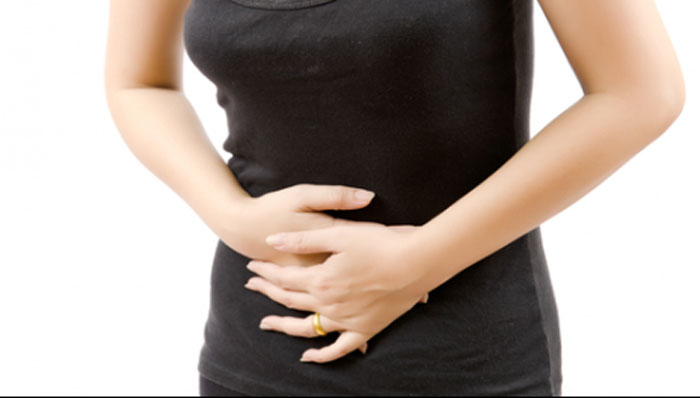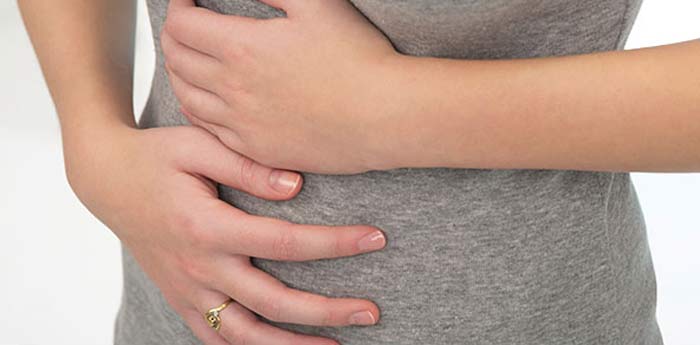How are prenatal vitamins linked to weight gain? Can they make you increase your weight? Do these vitamins also cause constipation, acne, nausea and bloating? Read on to find out.
Do Prenatal Vitamins make you Gain Weight?
What are prenatal vitamin?
Prenatal vitamins are supplements recommended to pregnant women. These supplements can be either prescribed or sold over the counter. They can be taken even by non-pregnant women because they are just like other ordinary vitamins that you take daily.
The recommended prenatal vitamins include:
- Iron
- Folic acid
- Calcium
- Vitamin D
- Zinc
- Vitamin B6
- Copper
The only difference is that the prenatal vitamins provide crucial and essential vitamins and minerals that are needed in the development of a healthy pregnancy. Prenatal vitamins contains high amount of Iron and folic levels than the ordinary supplements. They help in the production of extra red blood cells that are required to maintain a healthy and successful pregnancy.
The role of vitamins in the body is to promote chemical reactions within different systems.
Prenatal Vitamins-Do Prenatal Vitamins make you gain weight?
Some vitamins interact with cell components and functions to protect and prevent cell destruction by toxic substances. For example, folic acid and Iron are essential minerals needed for the production of hemoglobin, a substance found in the red blood cells. Vitamin D is also needed by the body to produce some hormones and perform other immunity roles.
Gaining weight during pregnancy is a normal occurrence. This is because the baby in your womb will grow so it is very normal for you to gain weight because the baby will be increasing in size each. Also, doctors can use your weight gain chart as a tool to examine and monitor your pregnancy.
Prenatal vitamins can only make you gain weight indirectly. This means that when you take prenatal vitamins they will as well give your baby nutrients which will make the growth of your baby to be faster and healthier. When your baby has enough of the required nutrients it will also gain weight which also causes the mother to gain weight.
Some people link gaining weight to prenatal vitamins as when majority women take the prenatal vitamins during pregnancy gain weigh considerably. As discussed early, the major difference between prenatal vitamins and the regular vitamins is the quantity of the components found in the two types of vitamins.
As mentioned earlier, prenatal vitamins contains more iron and folic acid that the regular vitamins. Folic acid is needed by the developing baby in order to help with the production and growth of the neural tube therefore preventing neural birth defects.
The pregnant woman needs both of these minerals to produce extra red blood cells that are needed to carry the extra oxygen to the body and the infant. None of these minerals carry energy or can interact with the body system in any way that can make you gain weight.
Bottom line: Prenatal vitamins are not responsible for weight gain because they do not contain any calories which can result to weight gain but they cause weight gain indirectly by giving your baby more nutrients making it gain weight health wise and as well making the mother to gain weight.
Prenatal vitamins and weight gain review/testimonials
According to reviews some people agree that once you start to take the prenatal vitamins you start to gain weight while others disagree that they do not make you to gain any weight
Those who disagree that they do not cause weight gain outweigh those who say that they cause weight gain.
Do Prenatal Vitamins cause Constipation?
Constipation is a common problem for pregnant women. During pregnancy, high levels of progesterone slow the movement of food through your digestive tract and as your baby grows pressure from your uterus onto the rectal area can worsen can tend to restrict the movement of feces. It can also cause pelvic pain which may inhibit a person’s voluntary effort to pass stool.
According to doctors at Mayo Clinic, these vitamins are recommended because they are an essential part of nutrition during pregnancy. Some individuals can experience constipation and gastrointestinal discomfort from the prenatal vitamins. You should not quit taking the vitamins but work with your doctor in order to find a different vitamin or a remedy that can relieve the symptoms.
Iron is the main prenatal vitamin that causes constipation. During pregnancy your iron requirements increase as you produce additional blood volume. Iron and is a metal that carries electrical and magnetic charges, making it responsible for slowing of bowel movements, leading to constipation.
A quickly absorbed form of iron is more in getting iron into the body but it is more likely to cause constipation. Whereas, a slow release form of iron may not cause much constipation but it is not beneficial to your body. The only iron that does not cause constipation is the one you receive from your diet.
Iron supplementation prevents iron defiency anemia, a condition the causes weakness, fatigue, difficulty in concentration and poor circulation. Anemia can place you at a risk of preterm delivery, low birth weight and infant death.
Mayo Clinic advises pregnant women to drink plenty of water to avoid constipation. Increase the amount of fiber in your diet and stay physically active by doing exercises if you have your health care provider has told you to do that.
You should also eat a healthy diet that contains a good amount of iron and calcium. This will limit the amount of iron and calcium supplements that will be needed by your body.
Bottom line: Some prenatal vitamins may cause constipation especially iron, calcium and vitamin D. You should take enough fiber in your diet, drinking plenty of water and other fluids, taking a magnesium supplement or any other mild laxative can help in relieving the constipation during pregnancy.
Do Prenatal Vitamins cause Acne?
Acne is also another common problem during pregnancy. This is due to the increase or the imbalance of certain hormones. Some expecting mothers may blame prenatal vitamins as the cause of acne but there is no scientific evidence that prenatal vitamins cause acne.
Prenatal vitamins are nothing more than the regular daily multivitamins that are slightly higher than normal doses and this will not cause breakouts on your skin.
Both pregnancy and postpartum acne are heavily influenced due to the imbalance of hormones that occur during the first trimester and the period following child birth. During pregnancy you experience drops in estrogen and spikes in testosterone causes a rise in sebum production, which feeds the bacteria living inside the follicle and contributes to the formation of acne.
If you experience acne during pregnancy you should do the following to control the acne;
You should change your diet by staying away from acne causing foods including iodine, peanuts, soy and dairy which can trigger hormone fluctuations that lead to increased oil production.
Instead, substitute dairy foods with green leafy vegetables as your main source of calcium, drink almond, coconut, rice, or hemp milk and if you are a vegetarian stick to grains and legumes instead of tofu and cheese.
You should also observe your lifestyle by avoiding stress, having adequate sleep and performing skincare routine to minimize the effects of acne. Try doing stress relieving exercises like yoga, meditation and walking into your day.
Avoid any acne care products because they might interfere with your pregnancy, If you must take them do discuss with your physician before taking them.
Bottom line: Acne is a normal common problem during pregnancy and it due to the imbalance of hormones in a woman’s therefore prenatal vitamins are not associated with acne and there is no scientific evidence that they can cause acne.
Do Prenatal Vitamins Cause Nausea?
Prenatal vitamins are loaded with minerals, herbs and vitamins in large doses. These high amounts of ingredients can make them to have a disgusting smell making you to feel nauseated.
In order to prevent nausea when taking prenatal vitamins you should do the following:
Lack of body movement often helps reduce nausea; you should therefore take your pills before bedtime or naptime.
If you are nagging on the size of your pills, you should switch to a chewable or liquid supplement, or even a product with smaller pills.
You can also try another brand that does not have a nauseating odor or aftertaste because not all prenatal vitamins can make you nauseated.
Avoid taking your prenatal vitamins on an empty stomach. You should eat your meal first. Let it sit for a few minutes and then take your pills with plenty of water.
Finally, wash your vitamins down with peppermint tea instead of water. The American Pregnancy Association recommends this soothing tea for easing nausea.
Bottom line: Prenatal vitamins can cause nausea due to the ingredients they contain. The contents make them to have an unpleasant smell once you consume them. But if you eat a healthy, balanced diet that provides both you and your baby with the required dose nutrients you may not need these pills thus you will avoid nausea.
Do Prenatal Vitamins Cause Bloating?
There are a number of things that can make you feel bloated. Bloating occurs when your digestive tract slows down and when this happens you may produce more gas, which fills your intestines leading to a sensation of bloating and you may also go quite some time without passing stool which also produces the feeling of bloat.
Vitamins that occur naturally in food cannot make you bloated; neither do those that you take in the form of supplement pills. However, many multivitamin supplement pills contain minerals, which are another class of micronutrients. The mineral iron, which is used to help you make red blood cells can slow down your digestive tract and make you feel quite bloated. This happens when you take large doses of iron in supplement form.
To avoid bloating when taking vitamin supplements you can try switching to another brand without iron, provided that you are not pregnant, breastfeeding or when taking iron at your doctor’s suggestion.
Pregnant and breastfeeding women and anyone else who has to take iron might try looking for a slow release iron supplement which will be gentle on your digestive tract. You can also try increasing your fiber and water intake.
Bottom line: Prenatal vitamins can cause bloating because they contain the mineral iron which can slow down your tract and make you feel boated and this happens when you are taking large doses of iron in supplement.







